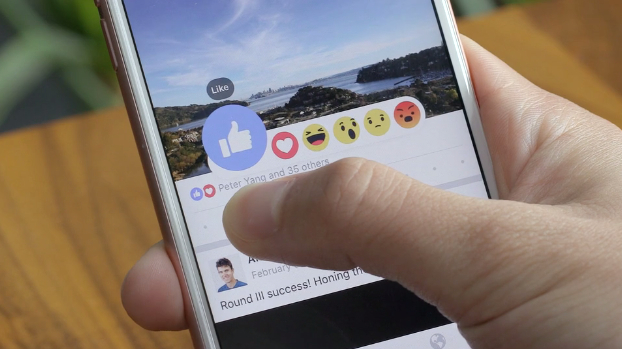Facebook's 'Like' button is now joined by several new emotions
Tell us how you really feel

Facebook's new reactions, which will accompany the existing Like button, are now rolling out globally.
The social network announced that, starting today, we will all have new ways to interact with people's posts. Not only will you be able to 'Like' something, but you'll have the option to 'Love' it or give it a 'Haha', 'Wow', 'Sad' or 'Angry' emoticon.
When Facebook first announced it was working on the new responses, there was also a 'Yay' emoticon in the mix - but it didn't make the final cut.
"We've been listening to people and know that there should be more ways to easily and quickly express how something you see in News Feed makes you feel," reads a blog post from Facebook.
For a long time, many users have been calling out for a 'Dislike' button, but Facebook believed it would have negative connotations. The 'Sad' and 'Angry' emojis are the compromise it has landed on.
Careful consideration
"For more than a year we have been conducting global research including focus groups and surveys to determine what types of reactions people would want to use most," said Facebook.
"We also looked at how people are already commenting on posts and the top stickers and emoticons as signals for the types of reactions people are already using to determine which reactions to offer."
Sign up for breaking news, reviews, opinion, top tech deals, and more.
To use the new feature, hold down the 'Like' button on mobile, or hover over the same button on the desktop browser version until the options pop up.
Facebook says the new feature is rolling out now, but as these things usually go, it might be a short while before you start seeing it.

Hugh Langley is the ex-News Editor of TechRadar. He had written for many magazines and websites including Business Insider, The Telegraph, IGN, Gizmodo, Entrepreneur Magazine, WIRED (UK), TrustedReviews, Business Insider Australia, Business Insider India, Business Insider Singapore, Wareable, The Ambient and more.
Hugh is now a correspondent at Business Insider covering Google and Alphabet, and has the unfortunate distinction of accidentally linking the TechRadar homepage to a rival publication.